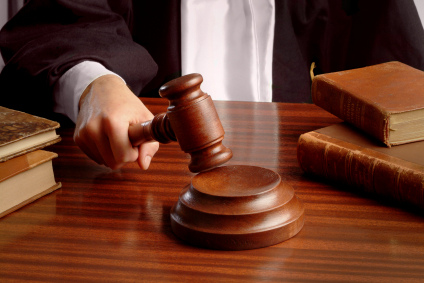 Earlier this week I had the experience that we all get periodically when we become adults; we usually whine and complain when a summons for jury duty arrives in the mail. The last and only other time I had jury duty was at least ten years ago. I expected a similar experience this time but I was pleasantly surprised that it was better.
Earlier this week I had the experience that we all get periodically when we become adults; we usually whine and complain when a summons for jury duty arrives in the mail. The last and only other time I had jury duty was at least ten years ago. I expected a similar experience this time but I was pleasantly surprised that it was better.
One of the key differences was a video that explained the process and emphasized how important jurors were to the system. The woman (lead judge?) in the video explained that in Arizona we had a good court system but we wanted to have a great one. Good to Great. I wondered if they used Jim Collins’ book by that title? His book looked at some of the greatest companies of the 20th century and reviewed what they did as start-ups to be so successful; I know that governmental agencies have also had success using the principles from his book. Coincidentally I had just read an interview, “How to Thrive in 2009” with Jim Collins from the April issue of Inc magazine; the article is linked here. I wouldn’t use the word Great to describe my juror experience but it was clearly better than my previous experience and not just because I was quickly dismissed.
Ignoring = Negativity
The biggest difference I noticed was the level of appreciation and attention given to the importance of the juror role. It was emphasized multiple times that the system works because jurors are available for the court and our presence was a key part of making our democracy function. I don’t remember receiving this message in my first experience as a juror. It seems obvious that ignoring someone would cause negative responses but think about the number of times you have felt ignored or you have not paid attention to people around you and missed that they may feel ignored.
In an earlier post I referenced the book StrenghFinder 2.0 by Tom Rath. In his book Tom Rath explains that the Gallup Group polled over 1,000 people on engagement. They found that you can reduce negativity just by paying attention to people. The data showed that active disengagement or negativity will happen
Acknowledgement = Power
The clerk’s statement as we were dismissed was a simple yet powerful acknowledgement, “The fact that jurors were ready and waiting helped assure that the case you were needed for has been settled out of court and dismissed, thank you again for your time and contribution to this important process.” This is so much more positive than stating, “Your services are no longer needed, thanks and you can leave.” There is nothing negative about the second statement but it is missing the powerful acknowledgement of the juror’s mere presence as part of the process that allowed the system to work.
How do you powerfully acknowledge and appreciate the people around you? Please post a comment
photo credit: Daine M Byne